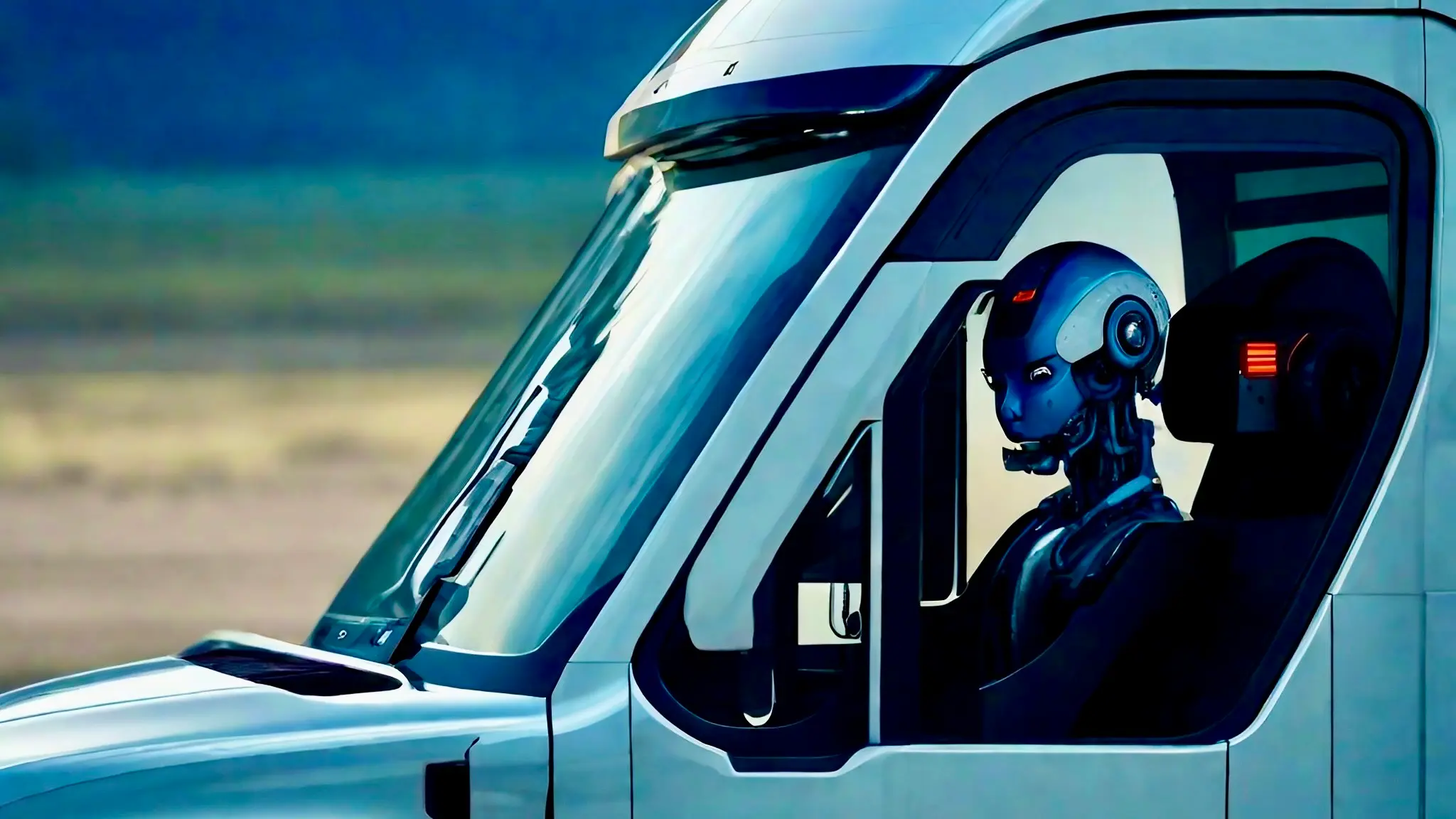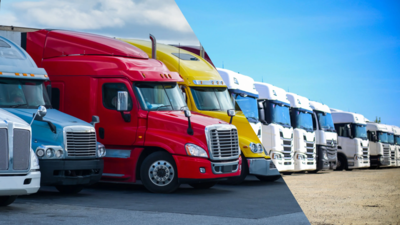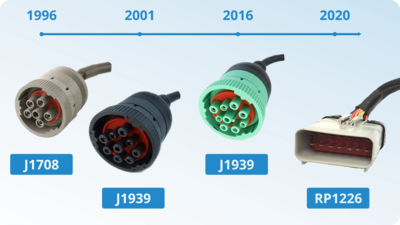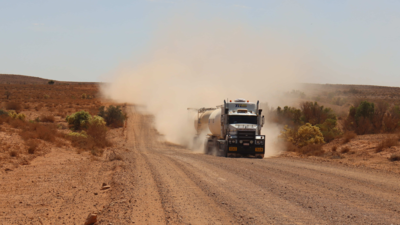
Picture this: You’re driving a dark and lonely stretch of highway, with no lights or buildings in either direction. You’ve been driving for hours, eyes beginning to glaze over when suddenly a semi-truck passes you on the right. But wait, that can’t be right– there’s no one in the driver’s seat! Is it a trick of the eyes? A hallucination, even? Maybe, but you might not be seeing things after all. What if the truck really is… driving itself?
This scenario is not far from reality as the trucking industry is on the brink of a technological revolution – the era of autonomous trucks. While it sounds like something out of a sci-fi movie, if you’ve been following trucking news for the past few years you may have heard about the development of driverless/autonomous trucks. But what does this mean, and how will it affect the trucking industry going forward? We’re here to answer some of your questions about this new technology.
How Does it Work?
In some cases, a driverless truck is exactly what it sounds like– a truck operating on its own, without a physical driver. A truck would be driven manually to a hub where it would then complete the highway stretch of the trip unmanned, stopping at another hub where a driver would operate the truck for the final leg of the trip. This has been referred to as the transfer hub model. Autonomous trucks utilize a combination of sensors, cameras, and artificial intelligence algorithms to navigate and operate without human intervention.
What Are the Benefits?
There are obvious logistical benefits to self-driving trucks. Here are a few key benefits:
- Hours of Service regulations wouldn’t limit driverless trucks. In fact, it’s possible to run an unmanned truck 24 hours a day, with remote drivers taking shifts.
- An increase in efficiency could mean a higher demand for trucks as a means of hauling freight (as opposed to air or rail).
- Lower fuel and maintenance costs, since human error is limited and driverless trucks are programmed to follow safe driving practices.
- Enhanced Road Safety: By minimizing human error, autonomous trucks have the potential to significantly reduce the number of road accidents.
Is There a Downside?
Perhaps the most obvious concern about this new tech is whether or not a switch to driverless trucks would eliminate jobs for traditional truck drivers. Other potential concerns include:
- A higher demand for trucks could mean an impact on the environment as a result of increased emissions.
- The software required for self-driving trucks is more advanced, so it will cost more initially for carriers to invest in this technology.
- Cybersecurity Risks: The advanced software used in autonomous trucks could be vulnerable to hacking and cyberattacks, posing new security challenges.
Flint's Insight on TuSimple
Flint, the CEO of TruckSpy Inc., shared his insights on the autonomous trucking company TuSimple. He noted the significant disparity between the company's stock price and its cash balance. Despite TuSimple's trading at $2 a share, the market's valuation of the company is less than the cash on its balance sheet. This discrepancy highlights the market's skepticism about the prospects of autonomous trucking. With TuSimple's stock now even lower at $1.51 per share, the concerns about the viability and future of autonomous trucking companies like TuSimple are further amplified. Watch the video on YouTube.
The Do-It-All Fleet Management Platform.
Start Today, No Contract. No CC.
Recent Update in Regulation
In a recent development, a bill in California that would have required humans to ride in autonomous trucks was vetoed. This decision underscores the ongoing regulatory challenges facing the autonomous trucking industry. The veto highlights the government's lack of caution approach to the deployment of autonomous trucks, emphasizing the need to ensure safety and address potential risks before the widespread adoption of this technology without over regulating the future technology. While California has taken a interesting approach, other states in the U.S. and countries worldwide are exploring various regulatory frameworks to accommodate the emergence of autonomous trucks. Read the ABC article here.
What Does This Mean for the Trucking Industry?
Going back to the elephant in the room: would this shift in the industry put thousands out of their jobs? The answer is complicated. It is worth noting that in many areas– especially as older drivers retire– there is a shortage of new drivers looking to get into long-haul trucking. The turnover is incredibly high already, and as this technology becomes more widely used in the coming years, more and more long-haul drivers will continue to retire. Some estimates suggest that fully autonomous trucks won’t become mainstream until 2030 or later. The shift to autonomous trucks will also reshape the insurance landscape, with questions about liability and coverage in the event of accidents.
Conclusion: Navigating the Road Ahead
The road to autonomous trucking is paved with both opportunities and challenges. The potential for increased efficiency, reduced costs, and enhanced safety is significant. However, the journey is not without its bumps. The prospect of job displacement for long-haul truck drivers looms large, and the initial investment required for the advanced technology is substantial. Concerns about the technology's ability to navigate unpredictable driving conditions and the potential impact on the environment due to increased emissions are valid and must be addressed.
While TruckSpy is not an autonomous trucking company, we are dedicated to revolutionizing your fleet technology today. Our Productivity Suite is designed to enhance efficiency, safety, and cost-effectiveness in your current operations. From our Compliance Pro ensuring seamless adherence to regulations, to our Smart ELD and Video Safety systems prioritizing your fleet's security and accountability, we are committed to driving your fleet into the future. Our advanced Productivity Suite integrates all these services, offering a holistic approach to fleet management. Don’t wait for tomorrow to upgrade your fleet's technology. Partner with TruckSpy today and set the course for a more efficient, safer, and technologically advanced fleet operation. Propel your fleet into the future, with TruckSpy leading the way. Join us in pioneering the path to innovation and excellence in fleet management. Your journey to a future-proof fleet begins now with TruckSpy.
In the end, the integration of autonomous trucks into the trucking industry holds the promise of a more efficient and safer transportation system. However, balancing technological advancement with the welfare of the workforce, environmental sustainability, and road safety will be the key to successfully steering the future of trucking.
As we navigate this exciting yet challenging road to autonomous trucking, what are your thoughts on the impact of this technology on the industry and society at large? Share your insights and join the conversation.
Recent Blogs
by Elyse Byers
July 5, 2024




